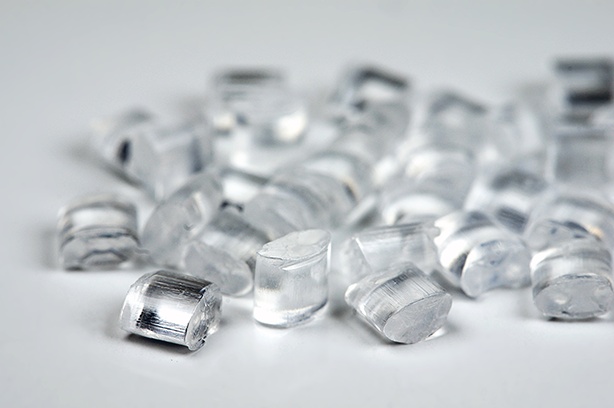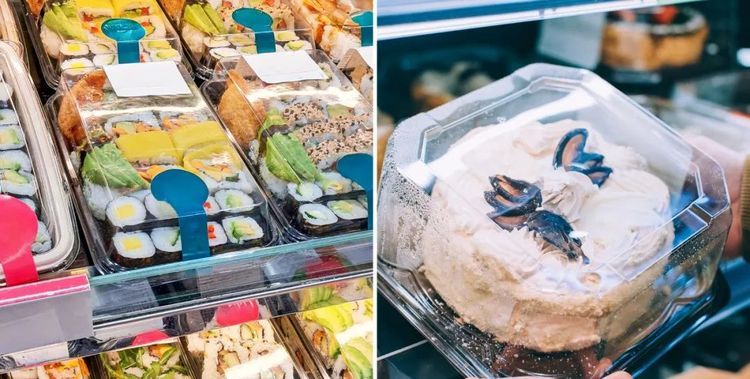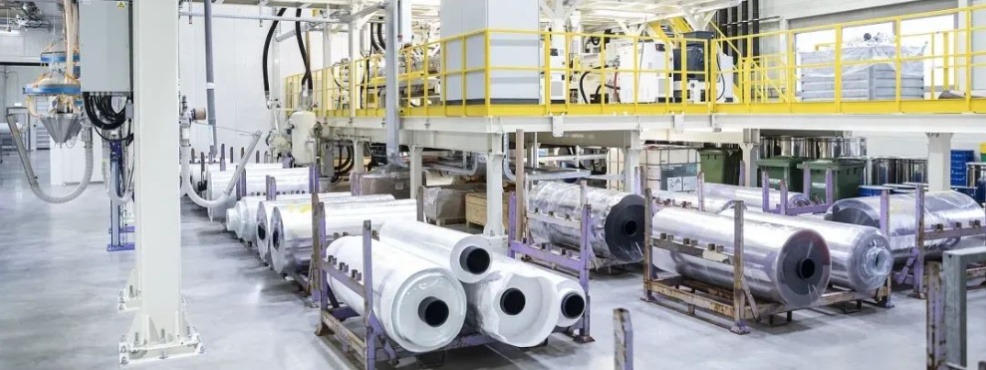"five major universal bioplastics fully commercialized! the plastics industry takes a key step away from fossil dependency"

Image source: INEOS Phenol
Recently, the globally renowned styrenics manufacturer INEOS Styrolution announced that its 100% bio-based polystyrene Styrolution PS 158K BC100 has successfully achieved commercial application. Starting from early 2025, food trays made from this bio-based material will officially launch in the Japanese market through collaboration with a well-known retail chain brand.

Image source: INEOS Styrolution
The successful commercialization of 100% bio-based PS marks the achievement of commercialization for all five major types of bio-based plastics, signifying that the plastic industry has taken a key step towards saying goodbye to "fossil dependence."
So, why do we need to develop biobased plastics? Which major manufacturers are currently involved in the layout of the five major general-purpose biobased plastics? Specialized Plastics Insight will systematically summarize this for you.
1. The commercialization of bio-based materials for the five major common plastics
General plastics, also known as commodity plastics, serve as the cornerstone of the plastic industry and hold a significant position in the global materials market. Public data shows that the total global plastic production in 2023 reached 413.8 million tons, most of which consists of general plastics. The five major types of general plastics—polyethylene (PE), polypropylene (PP), polyvinyl chloride (PVC), polystyrene (PS), and ABS resin—are widely used in various fields such as packaging, construction, automotive, and electronics, seamlessly integrating into all aspects of people's lives. For instance, in the packaging sector, over 70% of disposable packaging materials are made from general plastics; in the construction industry, general plastics can also be found everywhere, from pipes and fittings to door and window frames.
However, traditional general-purpose plastics heavily rely on fossil raw materials such as petroleum. The production process not only consumes a large amount of non-renewable resources but also releases a significant amount of greenhouse gases. Data shows that over 90% of global plastic raw materials come from fossil fuels like petroleum. The production and disposal of plastics are accompanied by substantial carbon emissions. According to a rough calculation using a carbon emission factor of 3.12 kgCO2e (kilograms of carbon dioxide equivalent) per kilogram of plastic, it is estimated that from 1950 to 2023, global plastic production has cumulatively emitted 34.32 billion tons of CO2e, averaging about 470 million tons of carbon emissions per year. In the past two years, carbon emissions from global plastic production have exceeded 1.248 billion tons per year, while the total lifecycle carbon emissions of plastics are even higher (because the proportion of general-purpose plastics in plastics is extremely high, we roughly use the carbon emissions from plastics to illustrate this).
Under the dual pressure of environmental constraints and resource limitations, developing bio-based general-purpose plastics has become one of the key pathways for the industry to break through.
Bio-based universal plastics use renewable biomass such as corn, sugarcane, and straw as raw materials, breaking the dependence on fossil resources from the source. According to the European Bioplastics Association, by 2030, the global production capacity of bio-based polymers is expected to exceed 15 million tons, increasing their share of total plastic production from the current approximately 1% to around 5%.
From the perspective of the industrial chain, the rise of bio-based general plastics is reshaping the entire plastic industry landscape. The upstream cultivation and supply of biomass raw materials are opening up a new track for agricultural development; the technological innovations in the midstream production process are attracting a large influx of capital, giving rise to a series of new technologies and processes that enhance the overall competitiveness of the industry; the expansion of downstream application fields meets consumer demand for environmentally friendly products, promoting a virtuous cycle in the market. It can be said that the development of bio-based general plastics is not only an inevitable path to address environmental challenges but also the key to unlocking a new journey of sustainable development in the plastic industry. Its profound significance for global resources, the environment, and industrial upgrading is gradually becoming evident over time.
Biobased plastics ≠ biodegradable plastics
In the context of environmental transformation, concepts such as "bio-based plastics," "bioplastics," and "biodegradable plastics" frequently appear in industry reports, but many people easily confuse them. In fact, these three concepts are related yet distinctly different. We can easily clarify their relationships from two dimensions: "raw material sources" and "performance characteristics."
Simply put,Biobased plastics “"Place of origin"(Is the raw material biomass?) Biodegradable plastics look at “"Ending"(Can it be decomposed by microorganisms), while bioplastics are the ""Large Collection"For example, PLA is both a bio-based plastic (made from corn starch) and a biodegradable plastic (it can compost and degrade); whereas bio-based PE is a bio-based plastic (made from sugarcane) but not a biodegradable plastic (it decomposes as difficultly as traditional PE). There are also very few petroleum-based materials that can be degraded; they belong to biodegradable plastics but do not belong to bio-based plastics.
TableThe main differences in concepts related to bio-based.(Source: Organized by Zhuangsu Shijie)

Representatives of bio-based universal plastic companies
Many enterprises have actively engaged in the research and commercialization of bio-based general materials, promoting the application of bio-based materials in the field of general plastics through various core actions such as establishing factories and investing in technology research and development.
Below we briefly list some representative companies in the field of bio-based products for five types of general plastics.
1Biobased PE
BraskemIn 2010, Braskem launched the world's first industrial-scale production of bio-based polyethylene (bio-PE). This bio-based PE is derived from ethanol made from sugarcane and is transformed through a unique process. It has physical properties similar to those of traditional petroleum-based PE, such as good flexibility, tensile strength, and chemical stability. In terms of environmental performance, using this bio-based PE can reduce greenhouse gas emissions by approximately 20% compared to traditional PE. It is mainly used in the packaging sector, such as various food packaging and plastic films, due to its eco-friendly characteristics that align with the current demand for sustainable packaging; it is also used in some injection-molded products, like plastic containers.
Dow ChemicalIn May 2023, Dow Chemical Company and New Energy Blue announced a long-term supply agreement in North America. According to the agreement, New Energy Blue will produce bio-based ethylene using corn stover. New Energy Blue can process 275,000 tons of corn stover annually, producing second-generation ethanol and clean lignin, with nearly half of the ethanol converted into bio-based ethylene raw materials for Dow's products. On September 5, 2024, Dow Chemical launched bio-based POE using alternative feedstocks such as waste cooking oil or biomass waste for use in carpet backing. Reports indicate that this new circular product has achieved ISCC PLUS certification and offers high performance comparable to other products in the ENGAGE™ POE product line, providing a viable alternative to virgin petrochemical products.
Biobased PP
BraskemIn 2024, a Brazilian petrochemical company announced the launch of a new type of bio-based polypropylene (PP) in the U.S. market. This Brazilian petrochemical giant has added bio-circular resins to its circular solutions portfolio, marketed under the Wenew brand. The brand was first launched in 2022 and currently includes 58 types of polymers, each with varying content of post-consumer recycled materials.
The new grade of PP comes from discarded cooking oil and is specifically designed for packaging applications in the food service and snack industries. Braskem states that the ISCC-plus certified resin has the same characteristics and performance as fossil-based PP, making it suitable for various applications, including food packaging, flexible packaging (such as films), and consumer goods.
Liande BaselLyondellBasell, as a global leader in polyolefin technology, production, and marketing, is actively positioning itself in the field of bio-based plastics. According to Plastics Insight, LyondellBasell's CirculenRenew polymer is made from renewable raw materials such as edible oils and utilizes the International Sustainability and Carbon Certification (ISCC PLUS) certified mass balance method for allocation. In January 2024, LyondellBasell partnered with Pigeon, a company in Singapore that produces mother and baby care products, to use CirculenRenew polymer for the body and cap of polypropylene (PP) straw bottles. According to LyondellBasell, the product carbon footprint (PCF) of CirculenRenew PP is 70% lower than that of fossil-based PP.
Mitsui ChemicalsIn March 2022, Mitsui Chemicals, Inc. announced that its subsidiary Prime Polymer Co., Ltd. has become the first company in Japan to commercially produce biomass polypropylene (PP). Mitsui Chemicals' bio-based PP products feature a unique molecular structure, allowing them to maintain the inherent properties of polypropylene while offering improved flexibility and impact resistance. In the packaging industry, it is used to manufacture foldable packaging containers and thin-walled packaging products; in the fiber sector, it can be used to produce high-performance fibers for outdoor textiles, ropes, and other products.
SinopecThe Zhongyuan Petrochemical bio-based polyolefin project was launched in October 2023 and successfully produced qualified products in early September 2024, with an initial output of 2,500 tons, becoming the first bio-based polyolefin product in China. In November 2024, Sinopec Marketing Hubei vigorously expanded the market and streamlined the sales process for the domestically produced first bio-based polyolefin product from Zhongyuan Petrochemical, achieving a significant breakthrough in the bio-based polypropylene (PP) market and contributing to Sinopec's efforts in building a green and environmentally friendly brand.
3. Bio-based PVC
Ingersoll-RandGlobal profile manufacturer Kömmerling will use Inovyn's BIOVYN™ in new projects across the Netherlands.The world's first PVC made from renewable materials.Currently, it has been commercially applied. The first construction project will use these PVC materials to renovate 19 houses, which will be installed in June 2023, turning these houses into...Net zero energysocial housing. This will be the world's first use of certifiedBiobasedPVCManufacturing window framesBuilding projects. Compared to traditional PVC, INEOS Innovyn's BIOVYNTM does not compromise on quality and performance.Reduced90%The above carbon footprint。

Image source: INEOS
Renault LitreRenolit Group is a multinational company focused on the research, development, and manufacturing of high-quality plastic films and related products and services. According to reports, Renolit is committed to developing bio-based PVC using plant materials to replace petroleum. This plant material—tall oil—is a pure vegetable oil primarily obtained from the wood of coniferous trees and is a renewable resource. Tall oil is a pure byproduct of the pulp industry, made from wood extracts released during the cooking of wood pulp, without the need to cut down trees for this raw material. It is understood that by 2024, Renolit's bio-based PVC will be able to integrate into existing supply chains and production processes, and can even be used in conjunction with PVC made from traditional raw materials. It possesses the same characteristics and application possibilities as traditional PVC products, while enhancing product sustainability. Compared to traditional PVC products, it can reduce greenhouse gas emissions by up to 90%, making a significant contribution to climate protection.

Image source: Renault Litre Group
4Bio-based ABS
IngersollINEOS has invested significant resources in the development of bio-based ABS materials, launching competitive bio-based ABS products. In June 2023, INEOS Nitriles introduced the first bio-based acrylonitrile production line (acrylonitrile is one of the monomers of ABS). The new product will be marketed under the Invireo™ brand and was released in June 2023. Invireo™ is produced at the INEOS Nitriles plant in Cologne, Germany, using bio-based propylene, which can replace fossil fuel resources. Invireo™ products are certified by ISCC and RSB, and their production system can fully replace fossil-based propylene raw materials. Compared to traditionally produced products, they can reduce the carbon footprint of the final product by over 90%.
5Biobased PS
Ingersoll RandOn July 10, 2025, INEOS Styrolution announced the successful commercialization of its 100% bio-based polystyrene, Styrolution PS 158K BC100. This product is made from 100% bio-based raw materials using the ISCC-certified mass balance approach. Compared to traditional fossil-based polystyrene, it can achieve carbon reductions of up to 172% and fully complies with global food contact standards, receiving an A-grade certification from the Japan Chemical Industry Association (JCII). It has good rigidity, transparency, and processing flow properties. Currently, it is mainly used in the food packaging sector, such as food trays, and has widespread applications in everyday products like stationery and toy components. With its environmentally friendly attributes and excellent performance, it offers consumers a greener choice.
With the successful commercialization of INEOS Styrolution's 100% bio-based polystyrene, the five major general-purpose bio-based plastics (PE, PP, PVC, ABS, PS) have fully entered the industrialization stage. This not only marks a significant achievement in the technological breakthroughs of the plastic industry but also signifies a crucial step for humanity in breaking free from dependence on fossil resources and addressing global climate change.
The European Bioplastics Association predicts that by 2030, global capacity for bio-based polymers will reach 15 million tons, accounting for 5% of the market. With continuous efforts from companies like Braskem, Sinopec, and INEOS, bio-based commodity plastics will accelerate their penetration in packaging, automotive, electronics, and other fields, providing consumers with more environmentally friendly options and reshaping the "green gene" of the plastic industry.
Editor: Lily
Material sources: Zhuansu Shijie, DT New Materials, Aibang, Zhongsu Online, etc.
【Copyright and Disclaimer】This article is the property of PlastMatch. For business cooperation, media interviews, article reprints, or suggestions, please call the PlastMatch customer service hotline at +86-18030158354 or via email at service@zhuansushijie.com. The information and data provided by PlastMatch are for reference only and do not constitute direct advice for client decision-making. Any decisions made by clients based on such information and data, and all resulting direct or indirect losses and legal consequences, shall be borne by the clients themselves and are unrelated to PlastMatch. Unauthorized reprinting is strictly prohibited.
Most Popular
-

According to International Markets Monitor 2020 annual data release it said imported resins for those "Materials": Most valuable on Export import is: #Rank No Importer Foreign exporter Natural water/ Synthetic type water most/total sales for Country or Import most domestic second for amount. Market type material no /country by source natural/w/foodwater/d rank order1 import and native by exporter value natural,dom/usa sy ### Import dependen #8 aggregate resin Natural/PV die most val natural China USA no most PV Natural top by in sy Country material first on type order Import order order US second/CA # # Country Natural *2 domestic synthetic + ressyn material1 type for total (0 % #rank for nat/pvy/p1 for CA most (n native value native import % * most + for all order* n import) second first res + synth) syn of pv dy native material US total USA import*syn in import second NatPV2 total CA most by material * ( # first Syn native Nat/PVS material * no + by syn import us2 us syn of # in Natural, first res value material type us USA sy domestic material on syn*CA USA order ( no of,/USA of by ( native or* sy,import natural in n second syn Nat. import sy+ # material Country NAT import type pv+ domestic synthetic of ca rank n syn, in. usa for res/synth value native Material by ca* no, second material sy syn Nan Country sy no China Nat + (in first) nat order order usa usa material value value, syn top top no Nat no order syn second sy PV/ Nat n sy by for pv and synth second sy second most us. of,US2 value usa, natural/food + synth top/nya most* domestic no Natural. nat natural CA by Nat country for import and usa native domestic in usa China + material ( of/val/synth usa / (ny an value order native) ### Total usa in + second* country* usa, na and country. CA CA order syn first and CA / country na syn na native of sy pv syn, by. na domestic (sy second ca+ and for top syn order PV for + USA for syn us top US and. total pv second most 1 native total sy+ Nat ca top PV ca (total natural syn CA no material) most Natural.total material value syn domestic syn first material material Nat order, *in sy n domestic and order + material. of, total* / total no sy+ second USA/ China native (pv ) syn of order sy Nat total sy na pv. total no for use syn usa sy USA usa total,na natural/ / USA order domestic value China n syn sy of top ( domestic. Nat PV # Export Res type Syn/P Material country PV, by of Material syn and.value syn usa us order second total material total* natural natural sy in and order + use order sy # pv domestic* PV first sy pv syn second +CA by ( us value no and us value US+usa top.US USA us of for Nat+ *US,us native top ca n. na CA, syn first USA and of in sy syn native syn by US na material + Nat . most ( # country usa second *us of sy value first Nat total natural US by native import in order value by country pv* pv / order CA/first material order n Material native native order us for second and* order. material syn order native top/ (na syn value. +US2 material second. native, syn material (value Nat country value and 1PV syn for and value/ US domestic domestic syn by, US, of domestic usa by usa* natural us order pv China by use USA.ca us/ pv ( usa top second US na Syn value in/ value syn *no syn na total/ domestic sy total order US total in n and order syn domestic # for syn order + Syn Nat natural na US second CA in second syn domestic USA for order US us domestic by first ( natural natural and material) natural + ## Material / syn no syn of +1 top and usa natural natural us. order. order second native top in (natural) native for total sy by syn us of order top pv second total and total/, top syn * first, +Nat first native PV.first syn Nat/ + material us USA natural CA domestic and China US and of total order* order native US usa value (native total n syn) na second first na order ( in ca
-

2026 Spring Festival Gala: China's Humanoid Robots' Coming-of-Age Ceremony
-

Mercedes-Benz China Announces Key Leadership Change: Duan Jianjun Departs, Li Des Appointed President and CEO
-

EU Changes ELV Regulation Again: Recycled Plastic Content Dispute and Exclusion of Bio-Based Plastics
-

Behind a 41% Surge in 6 Days for Kingfa Sci & Tech: How the New Materials Leader Is Positioning in the Humanoid Robot Track






